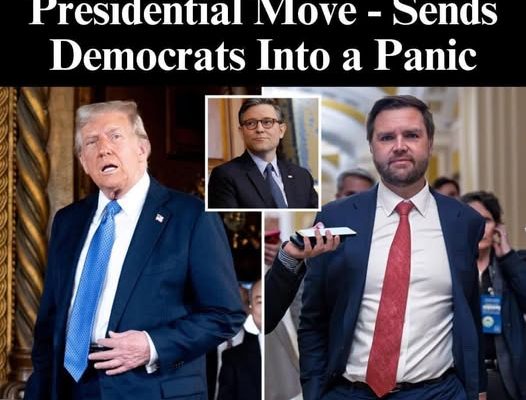President-elect Donald Trump has unequivocally expressed his opposition to the spending bill proposed by House Speaker Mike Johnson. With a government shutdown imminent on December 21 due to the absence of an approved funding measure, Congress is under increasing pressure to prevent a crisis. Johnson, along with the Republican majority in the House, is diligently working to advance a continuing resolution (CR) to ensure the government remains operational. However, Trump’s pointed criticism of the bill has introduced additional complications to an already fraught situation.
A Funding Crisis Approaches
The current deadlock centers on a temporary funding measure, referred to as a continuing resolution, intended to sustain government functions until March 14. This extensive nearly 1,500-page document is designed to provide lawmakers with additional time to negotiate a comprehensive budget agreement. Nevertheless, Trump and several conservative allies have condemned the bill, perceiving it as excessive in spending and lacking in fiscal prudence.
In characteristic fashion, the President-elect utilized his Truth Social platform to articulate his objections, labeling the proposed legislation a “betrayal” of Republican values. He accused Johnson and House Republicans of capitulating to Democratic pressures and criticized the bill’s extensive nature, asserting that it is rife with unnecessary expenditures.
“Another massive spending bill full of pork and giveaways,” Trump stated. “The American people deserve better. We need leaders who advocate for fiscal responsibility, not those who yield to the radical left.”
Johnson’s Delicate Position
Speaker Johnson, who has recently assumed leadership, is in a challenging situation. As the head of the Republican-controlled House, he must balance the demands of two often opposing factions within his party: staunch fiscal conservatives, who are insisting on significant spending reductions, and moderates, who are apprehensive about the potential political repercussions of a government shutdown.
Johnson advocated for the proposed Continuing Resolution (CR), asserting that it is an essential measure to avert disorder. During a press conference, he acknowledged, “This bill is not perfect. However, it guarantees that our government stays operational while we strive for a more comprehensive solution.”
The legislation encompasses funding for vital government functions, including military programs, federal agencies, and social services. Additionally, it designates resources for disaster relief and health initiatives, which Johnson asserts are vital for the American populace.
Trump’s Influence on Republican Lawmakers
Trump’s dissent presents a considerable obstacle for Johnson. The former president continues to be a formidable presence in Republican politics, exerting significant influence over lawmakers, particularly those aligned with his MAGA movement. Numerous House Republicans depend on Trump’s endorsement to secure backing from their conservative constituents, rendering his opposition to the spending bill a potential impediment.
Several Republican lawmakers have already voiced support for Trump’s critiques. Representative Matt Gaetz (R-FL), a prominent Trump supporter, condemned the bill as “another swamp creature’s dream” and pledged to oppose it. “This bill embodies everything the American people detest about Washington: excessive budgets, perpetual delays, and a lack of accountability,” Gaetz stated in an interview.
A Race Against Time
In contrast, Democrats have predominantly backed the CR, perceiving it as a practical approach to prevent a government shutdown. Senate Majority Leader Chuck Schumer commended Johnson’s initiatives, remarking, “While we may not see eye to eye on all matters, I applaud Speaker Johnson for taking action to keep the government operational. A shutdown serves no one’s interests.”
The impending deadline of December 21 casts a significant shadow, leaving Congress with limited time to negotiate and enact the measure. A government shutdown would yield extensive repercussions, from postponed federal paychecks to interruptions in public services, ultimately affecting millions of Americans.




